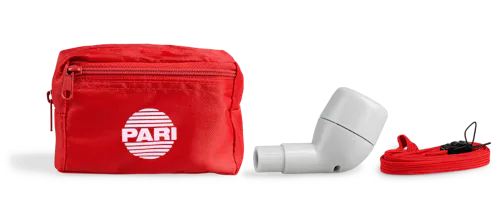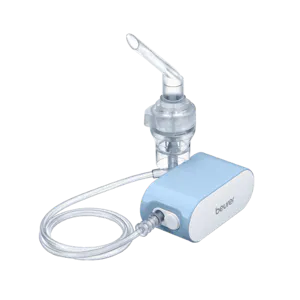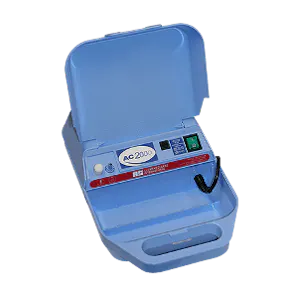Nebulising Saline
Sticky mucus secretions in lower airways can cause serious long term issues in many chest conditions. Nebulising saline may help.

Can you sing?
We can’t or at least not very well.
Recent research however shows that after nebulising isotonic saline Sopranos can sing more effortlessly and as a matter of fact over the years we have had occasional calls from exotic visiting entertainers needing a nebuliser to assist their performance.
This research, no doubt, has a more serious aspect and is part of a ‘dehydration challenge’ where dry air and sterile water were used for comparison. Although the results were noticeable, the benefit was only short term which helps explain why some of you will be prescribed saline at regular intervals.
What is isotonic saline?
Isotonic saline is basically sterile salt water at a concentration of 0.9% and often referred to as normal saline. It has many medical uses, nebulisation being just one, but for those of you with a tracheostomy or laryngectomy it can be vital to prevent sticky secretions blocking your airway.
Sticky mucus secretions in lower airways can cause serious long term issues in many chest conditions. They are difficult to clear by coughing and can lead to frequent recurrent chest infections, lung damage and often exhaustion from over coughing and lack of sleep.
Treatment is very individual and can range from being recommended a simple oscillating PEP device such as the Flutter or the Shaker, regular nebulisation with normal saline, to a complex therapeutic regime which may include chest physio, mucolytics, inhaled bronchodilators, antibiotics or steroids.
Hypertonic Saline
As part of your therapeutic regime many of you are prescribed hypertonic saline. This is a stronger concentration of sterile salt solution which can be anything from 3% to 9%.
It has been used over the years to treat many chest conditions such as bronchiolitis, bronchiectasis and cystic fibrosis, and it has helped to the reduce the number of recurrent chest infections and improve lung function for some of you over the short term. However the research is still very much ongoing and where some of you find it beneficial, for others it is not appropriate or you may find it unhelpful. Your health practitioner may suggest a short term trial.
Which nebuliser to choose?
You may find the hypertonic saline more difficult to nebulise due to its higher concentration of salt, therefore long term a slightly more powerful unit may be more appropriate or one with a specialised chamber. Why not take a look at what is on offer form the leading manufacturers: Philips Nebulisers, Omron Nebulisers, Pari Nebulisers, Medix Nebulisers and Beurer Nebulisers.
There will almost certainly be more residual salt so cleaning the accessories will need extra attention and you can read more about that on this blog post.
If wish to chat about which nebuliser may be more appropriate or you can recommend a particular unit for others, please give us a call.
Photo credit: Hafizh Armynazrie






